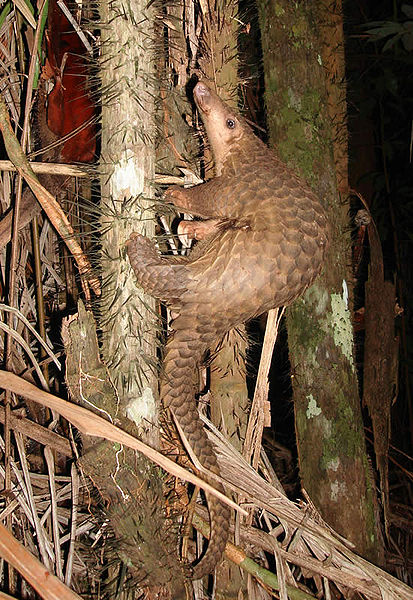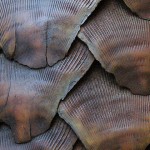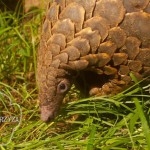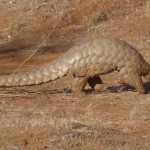Thai customs officials have seized nearly 250 pangolins in less than two weeks.
MSNBC reports that the 110 pangolins were seized from a pickup truck at a Customs checkpoint.
Freeland Foundation posted photos of the confiscated animals on their Facebook page and reported that only one arrest was made.
They say that, while the driver of the vehicle fled the scene on foot, the authorities were able to apprehend the passenger.
Apparently, the suspect has already paid a fine amounting to the equivalent of US $75,000, which was dealt to him as a punishment for this crime.
The Bangkok-based NGO added that the criminal is believed to be involved in an international wildlife trade syndicate responsible for smuggling “thousands of pangolins destined for markets in China and Vietnam”.
June off to a bad start for pangolins
The incident follows less than two weeks after Thai Customs officers seized 138 pangolins that seem to have been en route to Laos, and also arrested another suspect, Pracha Ramai.
Last weekend, Malaysian authorities arrested five locals and seized a total of 171 scaly anteaters (in two busts) that were said to have been on their way to Thailand — possibly as a stop over on their way to larger consumer markets in China or Vietnam.
Already this month, there have been at least four cases of pangolin seizures in Malaysia, Vietnam, and now Thailand.
Media reports on these busts indicate officials have confiscated total of 281 of the animals — all within the first seven days of the month.
Pangolins in peril
An estimated total of 41,000 (and perhaps as many as 60,000) pangolins were plundered from the wild in 2011 to supply a seemingly insatiable demand for the creatures, which stems mainly from China and Vietnam.
Their flesh is consumed both as a delicacy and for perceived “health benefits”, such as kidney nourishment.
Other parts of their body — particularly their scales — are highly sought after for superstitious use in traditional Chinese medicines as a “cure-all” remedy for things like weight loss promotion, lactation stimulation, swelling reduction, improved liver function, and even as a cancer cure, among other things.
However, the animals’ scales are chiefly comprised of keratin — much like rhino horns, another lucrative black market item used in traditional Chinese “medicines”.
Scientific studies have demonstrated that rhino horn holds no curative medicinal properties, which means the same is likely true for the similarly composed pangolin scales.
Unfortunately, ‘medicinal use’ pangolin farming ventures in China appear to be stimulating the demand and perpetuating the myths surrounding these imperiled creatures.
Read “8 Things Everyone Should Know About the Booming Illicit Pangolin Trade” for more information.
Author: Sarah Pappin. Read more about Sarah here.
Want to help? Check out our pangolin t-shirts: Project Pangolin is contributing $2.00 per t-shirt or hoodie to Education for Nature-Vietnam.
Image by Piekfrosch via Wikimedia Commons







Comments are closed.